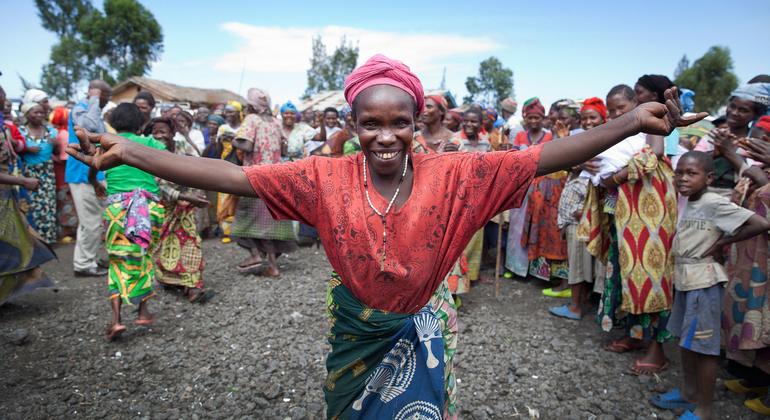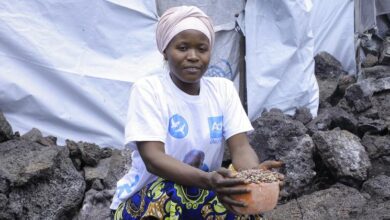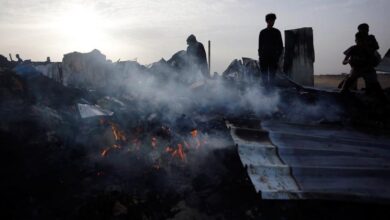Explainer: How to enhance women’s role in peace and security

Currently, the reality is grim: in 2023, the proportion of women killed in armed conflicts doubled compared to the previous year, and the number of cases of conflict-related sexual violence has been reported by the United States. United Nations verification has increased by 50%.
Meanwhile, the proportion of international aid committed to supporting gender equality in conflict-affected contexts has declined in recent years, which is evident in the significantly underfunded programs dedicated for areas such as preventing gender-based violence in humanitarian emergencies.
These challenges have long been brought to the attention of the United Nations, including the problem Security Councilthe place has passed the landmark 1325 resolution in 2000, recognizing women’s important contributions to conflict prevention and resolution.
Here are eight ways to do it:
1. Greater presence in peace negotiations
In 2023, women made up just 9.6% of participants in more than 50 peace processes around the world. Among peace processes led or co-led by the United Nations, the number increased but only to 19%.
The Secretary-General’s report calls on parties involved in peace negotiations to set an initial minimum target for women to make up one-third of those participating in peace and reconciliation processes.
The ultimate goal is to increase their participation to achieve equality with men.
2. Abolish laws that violate human rights
States should abolish all discriminatory laws and policies that violate the human rights of women and girls or that result in any form of discrimination on the basis of sex, including and laws and policies that erode their bodily autonomy.
Greater participation of women can significantly shape law and policy making.
An example of this occurred in Sierra Leone, where an increase in women’s representation in parliament in 2023 contributed to a ban on child marriage in 2024.
3. Strengthen decision-making power
Women should participate in decisions on key areas such as conflict resolution, humanitarian coordination, community security, access to justice, early warning, and climate mitigation and adaptation.
At the same time, gender quotas can be used to strengthen women’s power.
Of the 45 conflict-affected countries cited in the Secretary-General’s report, those with legislated gender quotas showed an average female representation in parliament of 25%, compared with only 15% in countries without such targets.
4. Hold human rights violators accountable
National authorities should use their criminal justice systems to pursue those who commit crimes against women in all areas of life.
That includes conflict-related sexual violence, reproductive violence or violence against women in political and public life both online and offline.
In addition to national jurisdiction, International Court of Justice (ICJ) And International Criminal Court (ICC) can also advance the cause of gender equality.
Read our story about how a military tribunal in the Democratic Republic of Congo brought a warlord to justice for war crimes including rape and murder Thisand watch UN Video footage of the case below:
5. Rights must be maintained after the conclusion of United Nations missions
Efforts should be made to ensure that gains made in promoting women’s rights are sustained after the UN mission ends.
In countries where UN peacekeeping operations and other multilateral programs are ongoing or have recently concluded, stakeholders should commit to increased political and financial support for implementation. This.
That may include ensuring that gender-related issues are considered in their mandate, preparation, staffing, budgets and reporting.
6. Peacekeepers and political activists
Authorities should adopt a zero-tolerance approach to any form of intimidation or retaliation against women for their political participation, human rights and humanitarian work, and peacebuilding activities. or cooperate with United Nations mechanisms.
For example, that may require providing stronger protection for women human rights defenders who are at risk.
It could also mean considering gender-based persecution in asylum applications.
7. Support survivors
Survivors of conflict-related sexual violence must have full access to sexual and reproductive care services.
Such services should include emergency care related to pregnancies resulting from rape, given the widespread and systematic use of sexual violence as a tactic of war.
Of the 31 peace agreements reached by 2023, only eight, or 26%, explicitly mentioned women, girls, gender-based or sexual violence. That represents a slight decrease from 28% the previous year.

Asociación Damas Leche (ASODALE) promotes solidarity and teamwork among women to contribute to peace and reconciliation in their territory in Colombia.
8. Prioritize peace
As the world faces record levels of armed conflict and violence, countries should ensure that minimal human and economic resources are devoted to armaments and military spending, while simultaneously Measures should be enacted to accelerate the disarmament process.
These measures should include greater transparency in arms transfers and military spending, strengthening arms embargoes, and adopting gender-responsive laws to limit arms sales.
Additionally, steps should be taken to minimize the risk that legally sold firearms are used to commit or facilitate conflict-related and gender-based sexual violence.




